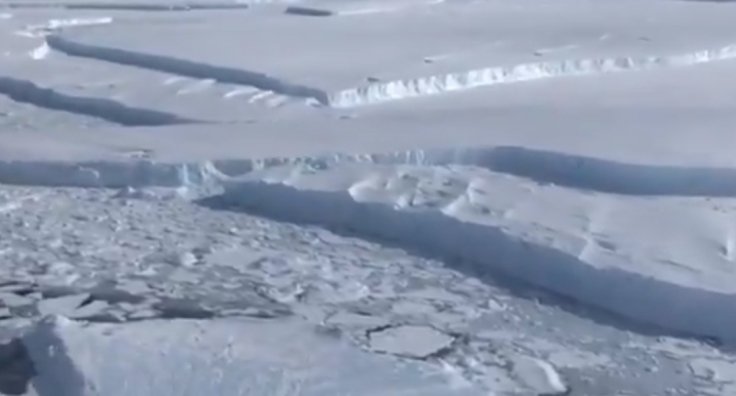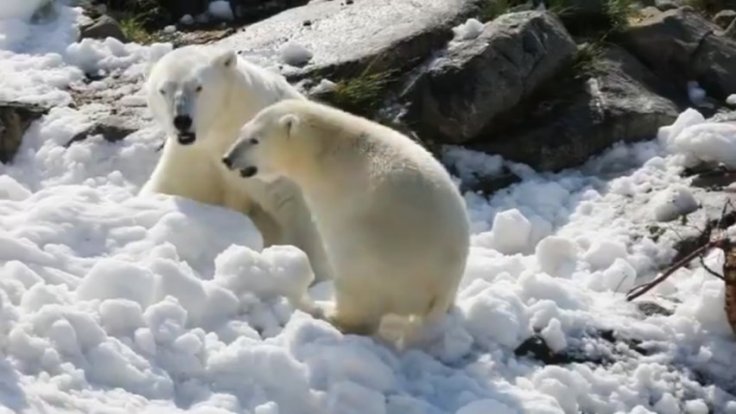The Arctic region is warming up at a rapid rate and the consequences of it will have global ramifications, warns a new study. Presented by a team of experts across various disciplines, the study states that the temperature at the Arctic has risen by 0.75C in the past ten years.
The earth, on the whole, has warmed by 0.8C say the researchers. The study also records the various effects that the increasing temperatures at the poles can have on tundra vegetation, human livelihoods, wildlife, levels of methane released, and the loss of ice on land as well as the sea.
"Many of the changes over the past decade are so dramatic they make you wonder what the next decade of warming will bring," said Eric Post, lead author, and professor of climate change ecology at UC Davis. "If we haven't already entered a new Arctic, we are certainly on the threshold," he added.

Earth inching closer to 2C increase
At the 2015 COP21, also known as the 2015 Paris Climate Conference, countries across the world accepted that the increase in global temperature must be kept below 2C to avoid large scale environmental impacts.
Discussing the effects of the 2C warming milestone that earth is heading towards and its impact on high latitudes, the study highlighted that nearing of the milestone could result in a rise in temperatures of up to 7C in the Arctic, and 3C in the Antarctic during certain months of the year. While the earth as a whole may reach that milestone in 40 years under current conditions, the researchers say that polar regions have already reached those temperatures.
"But the Arctic is already there during some months of the year, and it could reach 2 degrees C warming on an annual mean basis as soon as 25 years before the rest of the planet," said Post.
Other warnings in the study included the effect on flora and fauna. Citing the examples of Polar bears that are increasingly foraging on land due to loss of habitat/ice, and the steady increase of Musk Ox population in Greenland due to increasing land cover, the researchers called attention to the varying effects that the warming of the polar region has on different species of animals. Changing patterns of vegetation in these areas and their association with the herbivore population will play an important role in carbon mitigation.
Also, biodiversity being low in Antarctic regions, ecosystems could be in the danger of witnessing state shifts and species invasions.
Effects felt beyond polar regions
"What happens in the Arctic doesn't stay in the Arctic," said co-author Michael Mann, professor of atmospheric sciences at Penn State.
The authors emphasised that the effects of polar warming without carbon emission reduction will not be confined to the arctic regions alone. Some of the resulting impacts would include increased risk of potent heat waves in, extreme weather and wildfire in parts of the Northern Hemisphere. Rising sea levels will be another outcome of the sharp increase in the rate of land ice melting in the Arctic and the Antarctic according to the paper.
Jetstreams, currents of air high above the Earth, are being affected by the substantial increase in the temperature of Arctic temperatures and the melting of ice in the region. This they said is resulting in extreme weather conditions. The California drought of 2011–2017 is one such example cited by the researchers.

Need to anticipate near-term changes and cooperation between nations
Highlighting existing treaties and collaborations between nations, the study calls for more of these partnerships to tackle the warming poles. The researchers asserted that better monitoring of the issue is the need of the hour. Existence of well-developed monitoring programs, such as the US Arctic Observing Network and the British Antarctic Survey, and the expansion of such programs will enable better policy development and planning in anticipation of continuing climate change and associated impacts.
Pointing to the Antarctic Treaty—which protects the Antarctic region through the regulation of commercial activities such as shipping and oil production, no such treaty protects the Arctic, the scientists said. Formulation of one is paramount according to them.
The researchers also stressed on the need to prepare immediate measures to curb carbon emissions in order to slow down the warming of high altitudes, the Arctic being an immediate concern.








